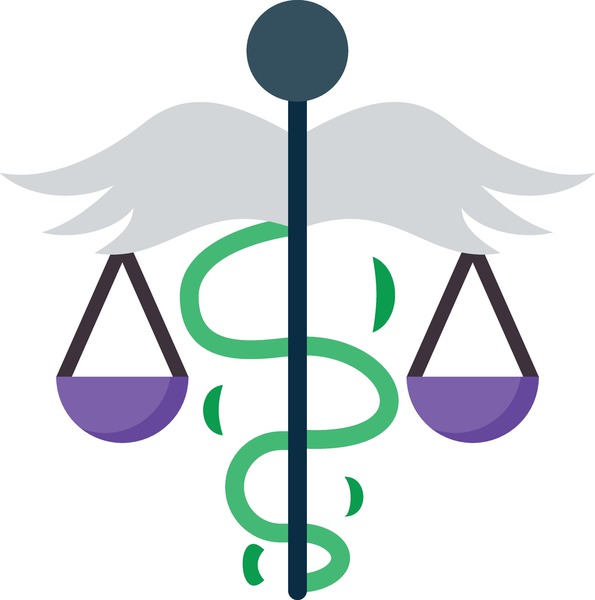Selecting appropriate professional liability insurance can feel overwhelming. Considering your specific needs, understanding coverage options, and thinking about potential risks helps you make smart choices. Picking the appropriate plan provides protection and peace of mind, ensuring that your professional reputation stays safe even if unexpected events occur.
What Factors Should Influence My Liability Insurance Decision
Professional liability concerns depend greatly on the industry in which you operate. Healthcare professionals, for example, can face unique malpractice claims that differ from accountants or architects. Evaluate closely the specific risks commonly associated with your line of work before choosing an insurance provider or plan.
Evaluate Policy Coverage and Protection Levels
Comparing various insurance policies remains an essential step before committing to coverage. Some will offer more complete protection, including claim defense coverage, settlement assistance, and legal consultation support. Reviewing the policy thoroughly establishes clarity concerning what each policy covers and excludes.
Check each policy’s limits, deductibles, and coverage inclusions carefully to match your particular professional situation. Selecting coverage that aligns properly with your exposure could prevent unexpected fees or gaps in coverage, avoiding detrimental financial setbacks.
Check for Adequate Policy Limits and Deductibles
Careful examination of limits and deductibles impacts your final insurance decision significantly. Ensure policy limits reflect the scale and nature of potential claims that professionals in your field tend to encounter. Lower limits might seem cost-effective initially, but could fail to shield against major lawsuits effectively.
Consider balancing affordable premiums with reasonable deductibles. Higher deductibles generally lead to lower premiums, yet require substantial upfront expenses whenever a claim arises. Selecting deductibles tailored closely to your budget comfortably balances cost savings and financial security.
Research Company’s Reputation and Financial Strength
Ensure you choose an insurance provider with trustworthy financial stability and an excellent track record. Verify online reviews, industry reputation, and consumer satisfaction ratings to determine confidence levels in any particular insurer. Investigating these attributes gives comfort in the chosen provider’s capacity to adequately manage future claims.
Seek insurance companies with positive long-term credit ratings, as these factors signal their ability to withstand economic instability. Opting to partner with companies recognized for exceptional claim processing lessens inconveniences and maintains professional continuity.
Consider Coverages Commonly Overlooked in Policies
Examine Extended Reporting Period Options
Whenever switching jobs or retiring, professionals commonly overlook examining extended reporting period coverage. This coverage provides ongoing protection against claims resulting from incidents occurring during an active insurance period but reported afterward. Tracing options to handle such incidents helps reduce future vulnerability.
Being aware of potential gaps in coverage, especially matters because claims might become apparent years later. Evaluation of tail-end coverages ensures continuous, comprehensive protection even after the regular policy concludes or terminates.
Confirm Coverage for Legal Expenses
Legal expenses easily escalate during professional liability lawsuits and disputes. Verifying whether your liability insurance covers total legal costs, including attorney fees, expert testimony charges, and court costs, safeguards professionals from significant financial burdens. Without complete legal expense protection, professionals risk heavy expenses that may not fit comfortably within typical operating budgets.
Seek explicit insurer confirmation about legal representation coverage provided during the claims process. Sufficient understanding and agreements on this issue efficiently manage expectations, prevent unanticipated bills, and maintain professional reputation despite legal situations.
Assess Industry-Specific Insurance Needs
Select Proper Coverage for Healthcare Professionals
Healthcare professionals have specific insurance needs to manage unique vulnerabilities in their industry effectively. Plans tailored to the healthcare sector help control potential risks, protect professional reputation, and secure finances properly. Look closely at specialized terms of coverage and clearly verify alignment between policy provisions and healthcare situations.
For example, providers may choose healthcare providers general liability coverage designed specifically for their services, offering robust protections matching occupational risks. Considering these specialized plans bolsters financial security, manages risks uniquely relevant to healthcare occupations, and provides the confidence professionals need for effectively practicing their roles.
Choosing Malpractice Insurance for Medical Practitioners
Malpractice incidents greatly impact the sustainability of medical practices, especially where litigation remains frequent. Selecting a dedicated malpractice coverage specifically targeting medically related risks minimizes financial strain, protects credibility, and protects professional credentials. Paying close attention to coverage limits ensures adequate compensation in case incidents occur.
Particularly for those practicing medicine in states with specific regulations, acquiring precise coverage like healthcare malpractice coverage in Louisiana indirectly facilitates adherence to state-specific guidelines related to malpractice incidents. Consultation with state regulatory authorities further helps select coverage suited precisely to statutory requirements, industry practices, and operational capacities in particular locations.
Ensure Proper Insurance for Employee Injury
Employee safety and health represent core responsibilities in every organization and business, particularly those dealing with higher occupational risks. Insurance covering workplace injury protects organizations and employees against unforeseen incidents. Without adequate provisions, injuries might cause detrimental setbacks, negatively influencing organizational productivity, financial stability, and employee safety.
Businesses should acquire specialized policies like workers compensation in Louisiana to match locally imposed regulatory obligations and practical requirements. Such coverage ensures timely assistance, maximizes financial security, and allows a structured organizational response to employee injury, maintaining continuous and effective operations.
Compare Premium Costs
Easily Manageable Payment Schedule
Flexible payment structures offered by insurance companies simplify maintaining continuous coverage. Monthly payments may seem more attractive toward budgeting concerns, yet annual commitments can sometimes offer discounted premiums. Consider your financial situation, organizational revenue cycles, cash flow patterns, and comfortably evaluate payment structures.
Selecting manageable premium payment options effectively streamlines payments without additional financial strain. Adequate planning, anticipating forthcoming costs in alignment with actual cash inflows, enhances fiscal predictability and allows continuous policy coverage without interruptions.
Pros and Cons of Policy Costs
-
Low-cost options ease initial expenses but may reduce coverage inclusions.
-
Expensive policies come loaded with increased benefits, comprehensive coverage, high limits, and more expansive protection terms.
-
Determine appropriate compromises through careful selection alongside analysis of offered benefits, potential risks, and policy costs.
Seek Professional Expert Advice
Insurance Agents and Broker Assistance
-
Insurance professionals provide personalized evaluations, reviewing multiple plans, clarifying confusing terms.
-
Industry-focused brokers help identify potential occupational hazards, recommend suitable policies.
-
Consulting agents or brokers delivers in-depth policy clarity, ensuring the selection aligns ideally with particular occupations and financial comfort.
Final Thoughts
Choosing professional liability insurance becomes simpler through thorough assessment, industry-specific considerations, policy comparisons, and professional advice input. Clarifying specific coverage features, examining relevant risks, verifying insurer reputation, and aligning payment options ensures complete, adequate, and manageable professional protections. Carefulness when considering policy coverages ensures financial stability, continuous protection, professional confidence, and sustained occupational viability over time.



